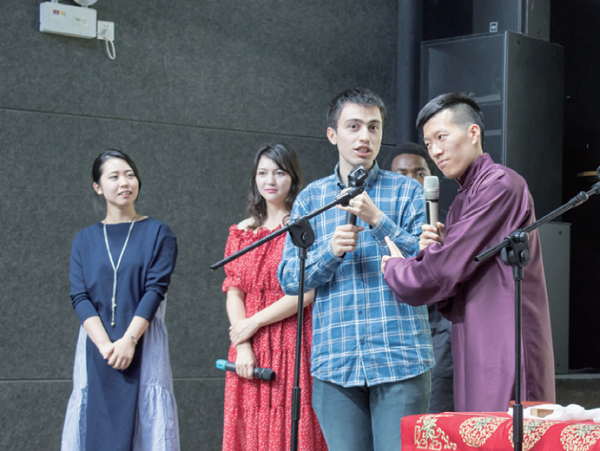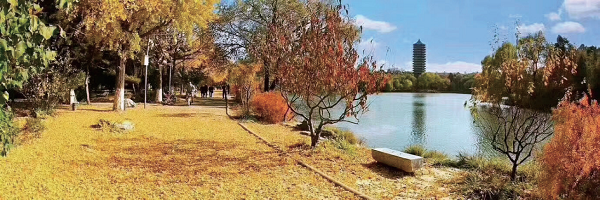[Turkey] Cumen Niyazi, Peking University

My name is Cumen Niyazi from Turkey. When it comes to Turkey and China, the first thing that comes to people’s mind must be the Kebab and the Great Wall.People pay the most attention to delicacy and fun places in these two ancient civilizations. Many people do not understand China and Turkey enough or have a lot of prejudice and misunderstanding. I am no exception.
Apart from the school’s history classes and costume TV dramas, we know nothing about China’s 5, 000 years of history and what she is today. I have long been influenced by what others and media have said, and I had also some misunderstanding toward China in the past. Is China really what I thought?
Speaking of my relationship with China, I want to go back to the world civilization course I learned in middle school. I first came into contact with the ancient and long-standing Chinese culture, more accurately, Confucius and Lao- Tzu and their thinking. We have an old saying: “Wisdom is like the things that people have lost, you can see them wherever you pick them up.” (This sentence means that wisdom, regardless of which country, nationality and faith, is the common property of mankind.)

In addition, my parents told me when I was a little child that “human beings are a family, the world is prosperous because of diversity.”Their words let me have great respect for wisdom and curiosity. From then on I began to contact the great wisdom of Chinese people, such as the thought of Confucius and Lao-Tzu. I also yearned to visit that mysterious land and contact the real philosophers and their wisdom.
After graduating from high school, I had the opportunity to come to China to study, so that I could slowly read the classics of the original text, research and tackle the fundamental and true face of its wisdom.
Arnold Toynbee, a famous British historian, once said that the 19th century belongs to Britain, the 20th century belongs to the US and the 21st century belongs to China. I think he’s right! It took only a few decades for China to go from a world-defying country to the world’s second-largest economy.
What’s different from other developed countries is China’s long history and culture. When we look at Chinese history, we will see that in East Asia (or in the cultural circle of Chinese characters) China represents a highly developed civilization for quite a long time.
Therefore, the efforts of the Chinese people are making now are in line with its tradition, such as the putting forward of “the Belt and Road Initiative” and “the Community of Shared Destiny for Mankind”. There are not a new approach to China, but rather a manifestation and continuation of traditional Chinese thought.
Speaking of Chinese thought, one would think that Confucianism, Buddhism and Taoism, especially the Confucianism, can stand it. Just as Confucius put it “Harmony is most precious”, and the spirit of kindheartedness bears universal value and significance. Chinese culture attaches great importance to and values the word “harmony”.

We can all see this in The Analects, such as “A gentleman seeks harmony but not uniformity;” “Harmony is the most precious.”This is to say that we can be different, but cannot kill each other or infringe other’s legal rights. It is to emphasize that we are graceful because of our differences, and it is unacceptable to get rid of those with dissenting opinions. In one word, don’t do to others what you don’t want others to do to you.
The proposal of the community of shared destiny for mankind proposed by China proves that Chinese want peace and harmony and they want to help other countries to this end. That is to say to contribute to world peace and harmonious progress.
Finally, I would like to quote a sentence from the book Master Sun’s Art of War –“Know the enemy and know yourself, and you can fight a hundred battles with no danger of defeat”. I want to chang it into –“know yourself and others as well will enable you to communicate freely”. I hope that each of our foreign friends who study the Chinese language and culture can take the Chinese- foreign exchange as a responsibility to bridge China and the world. In this way, we can solve problems the world faces now.
The story is from "My Beautiful Encounter with China" Essay Competition organized by the Chinese Service Center for Scholarly Exchanges (CSCSE).










